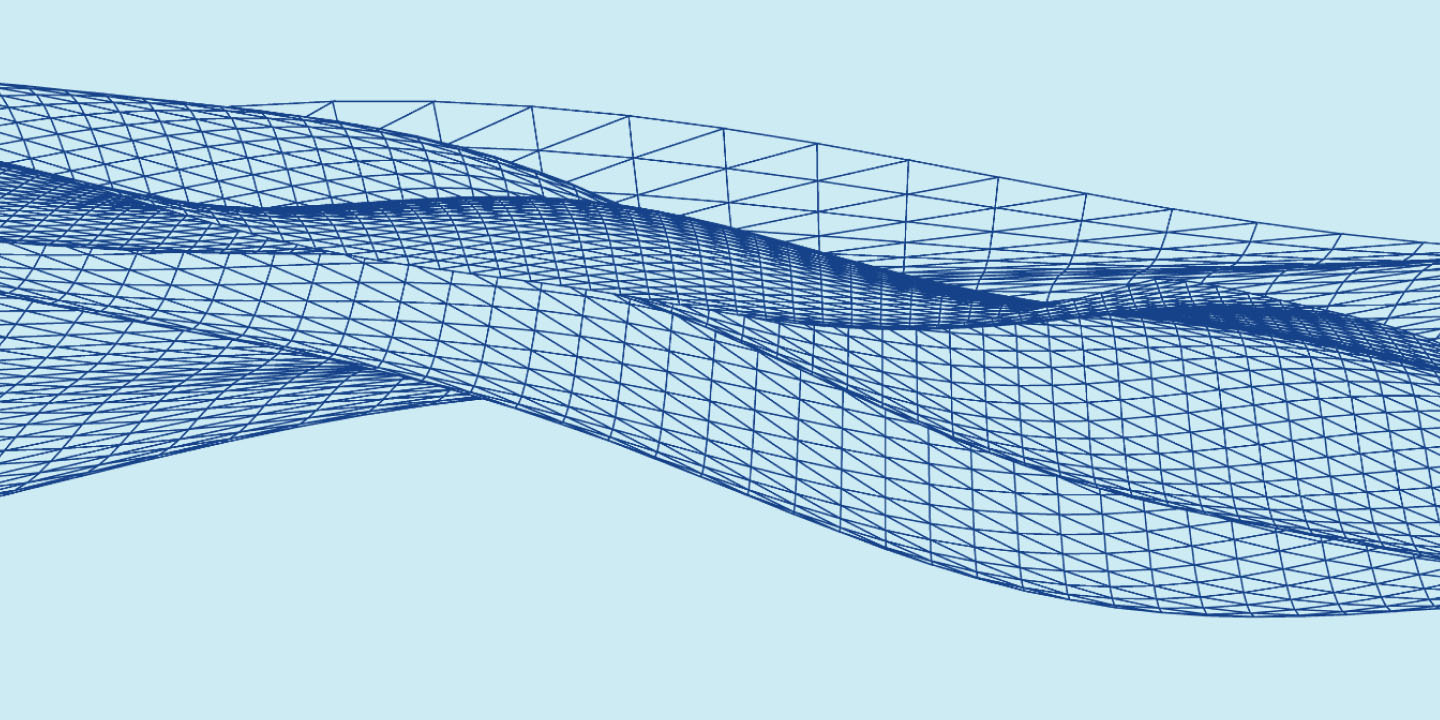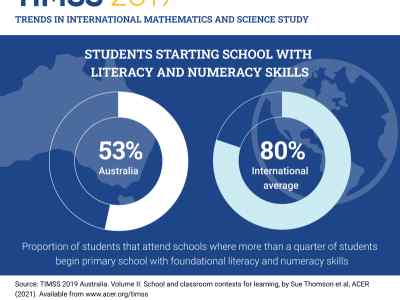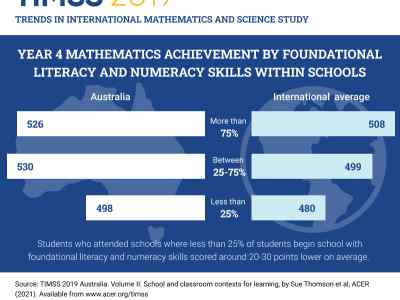
Australia trails behind in readiness for primary school: TIMSS
Media release 25 May 2021 5 minute readLower student literacy and numeracy skills when beginning primary school may be contributing to Australia’s poorer achievement in Year 4 mathematics, new research by the Australian Council for Educational Research (ACER) suggests.
Results from the 2019 Trends in International Mathematics and Science Study (TIMSS), released in December, revealed Australia was outperformed by 22 countries in Year 4 maths, compared to 8 countries in Year 4 science and just 6 in Year 8 maths and science.
ACER’s new analysis of TIMSS student, teacher and principal questionnaire data suggests an important factor behind Australia’s poor Year 4 maths achievement may be the low proportion of Australian students who begin primary school with foundational literacy and numeracy skills such as recognising and writing letters of the alphabet, reading and writing some words, recognising numbers higher than 10, and doing simple addition and subtraction.
Only half (53 per cent) of Australia’s Year 4s attended schools where more than a quarter of students enter school with foundational literacy and numeracy skills, compared to 80 per cent of Year 4s internationally. Those students recorded average mathematics and science scores around 30 points higher than the scores recorded by students who attended schools where less than 25 per cent of the student population had foundational literacy and numeracy skills upon entry to school.
Socioeconomically disadvantaged schools and schools in regional or remote areas were more likely to have less than 25 per cent of students enter school with foundational literacy and numeracy skills than more affluent schools or schools in major cities.
TIMSS National Research Coordinator and ACER Deputy CEO Dr Sue Thomson said, “These findings underline the importance of providing access for all children to quality pre-school and early childhood education.”
Dr Thomson said once children commence school, teacher effectiveness is one of the most important factors that can influence their learning. TIMSS reveals a high interest in ongoing professional learning among Australian teachers, with the most desired topics including integrating technology into instruction; critical thinking and problem solving; and addressing individual student needs.
“We know there is a wide range of achievement levels within most classes, so it’s vital that we have teachers with strong pedagogical knowledge to be able to help students whatever their needs,” Dr Thomson said.
About TIMSS
TIMSS has measured trends in Year 4 and Year 8 mathematics and science achievement every four years since 1995. More than 580 000 students from 64 countries and 8 benchmarking systems participated in the 2019 study, including 14 950 Australian students from 571 Australian schools.
TIMSS is a project of the International Association for the Evaluation of Educational Achievement (IEA). ACER manages the implementation and reporting of TIMSS within Australia.
The report TIMSS 2019: Australia. Volume I1: School and classroom contexts for learning by Sue Thomson, Nicole Wernert, Sarah Buckley, Sima Rodrigues, Elizabeth O’Grady and Marina Schmid, is available from www.acer.org/timss
Media enquiries:
ACER communications
+61 419 340 058
communications@acer.org

